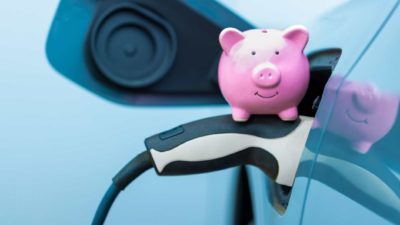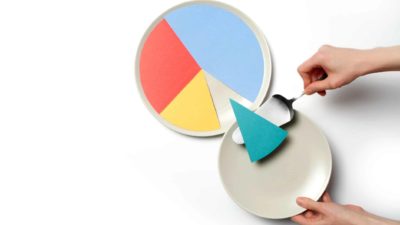This article was originally published on Fool.com. All figures quoted in US dollars unless otherwise stated.
When Google officially changed its name to Alphabet (NASDAQ: GOOG) (NASDAQ: GOOGL) in 2015, it was a clever play on words. The company could better be described as 'Alpha' (the most powerful) and 'Bet' (wager).
Google had already become synonymous with search. The advertising revenue it brought in made it a cash machine – earning the company a place in the now-famous FAANG group. But management – at the time led by co-founder Larry Page – wasn't willing to stop there. It wanted to take that extra cash and do good for the world by taking lots of small bets.
Thus, it started focusing on moonshot projects, like self-driving unit Waymo, smart home device Nest, and health-focused Calico, to name just a few. A tech titan trying to do great things for the world. Sounds great, doesn't it?
But maybe the company has been going about it all wrong.
Trying to 'change the world' as harmful goal
In 2017, Ryan Holiday – author of several best-selling books focused on stoic philosophy – wrote about something called the 'narrative fallacy'. Specifically, he noted that too many entrepreneurs want to go out and 'change the world'.
They do this because they look at business people who have already done so – Reed Hastings of Netflix or Tobi Lutke of Shopify, for instance. They want to be held in the same regard, and make such success their aim. In doing so, they create a narrative in their head: Those people set out to change the world, so will I.
That, said Holiday, is a recipe for disaster:
It's both an inspired way to look at things and also a clichéd trope. It also happens to be rather delusional ... Trying to 'change the world' was not the mission with which most great or successful things started out with. It's only our ego, afterwards, that creates these stories. And it blinds us to the traits which actually create success.
There's a conceit inherent in trying to 'change the world'. We assume our vision of a 'better world' is more or less the same as what everyone else's vision is. We might have a hard enough time reaching consensus on what this means in our own household. Throw different countries and cultures into the mix and it quickly becomes clear how difficult such a feat is. In this vein, setting out to change the world is not just silly, but dangerous.
Holiday later goes on to talk about how YouTube was started by people trying to share funny video clips. Netflix? Hastings got the idea because he was worried about getting in trouble with his wife for the Blockbuster late fees he was racking up. And Shopify? Lutke made snowboards but couldn't find a way to sell them on the internet – so he created his own platform.
What does this have to do with Alphabet?
Here's the other tidbit from Holiday's piece that made me think:
A few years ago, at a private event, Google founder Larry Page told a rapt audience that the way he evaluates prospective companies and entrepreneurs is by a single metric – asking them if what they're working on was something that could 'change the world'.
Prior to reading this, I considered such a mission inspired. But now? I'm starting to wonder. Perhaps Page and Sergey Brin were just two people who stumbled upon a brilliant way to organise the world's information and make it universally accessible – more or less the company's mission – but the 'narrative' ends there.
I've long thought Alphabet to be a company with incredible optionality: a wide-moat advertising business on one side, with lots of high-risk, high-reward ventures (like the three mentioned above) on the other side. For years it has looked like Waymo would be the first 'big hit' to come from these other bets. Some estimates pegged the unit's value at more than $100 billion. But recent private investments make it seem like the number is far less: $30 billion.
That's still not bad. But on the whole, these other bets have been around for a long time. Over the past six years alone, Alphabet has lost a combined $20 billion on them.
Could part of the problem with these high-risk, high-reward investments simply be that they're looking for companies that think they can change the world? Perhaps they should just be looking for individuals who are solving a simple problem in their own lives.
I'm not sure how to find those people, but if anyone does, it should be Google.
My takeaway
Over the years, Alphabet has become a smaller and smaller part of my portfolio. It's not because I've been selling shares, it's simply because the rest of my holdings have grown to dwarf it. This is clearly still a high-quality organisation that I want to own. It has nine different products with more than 1 billion users – and they're uber-helpful in my own life.
But my hopes for those high-risk, high-reward projects are fading. That doesn't mean I'll be selling shares, but I'll certainly be resetting my expectations. I think other Alphabet investors should – if they haven't yet – do the same.
This article was originally published on Fool.com. All figures quoted in US dollars unless otherwise stated.









